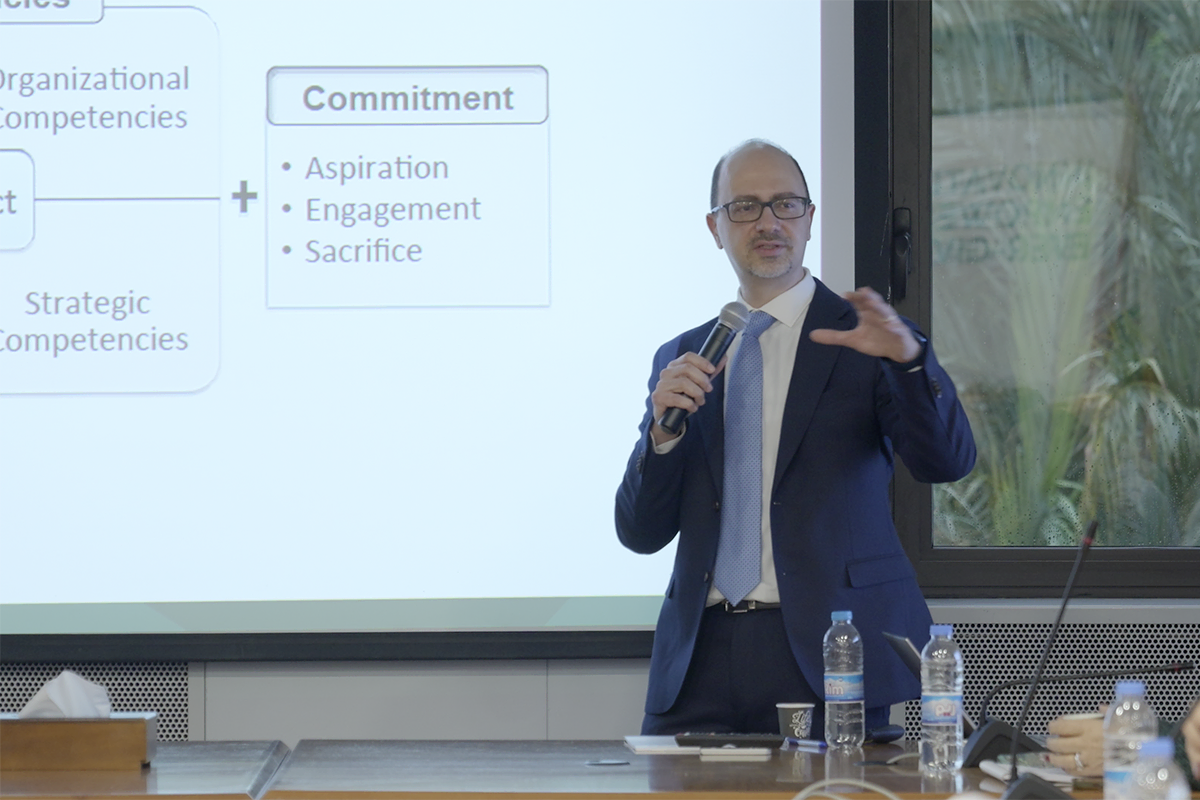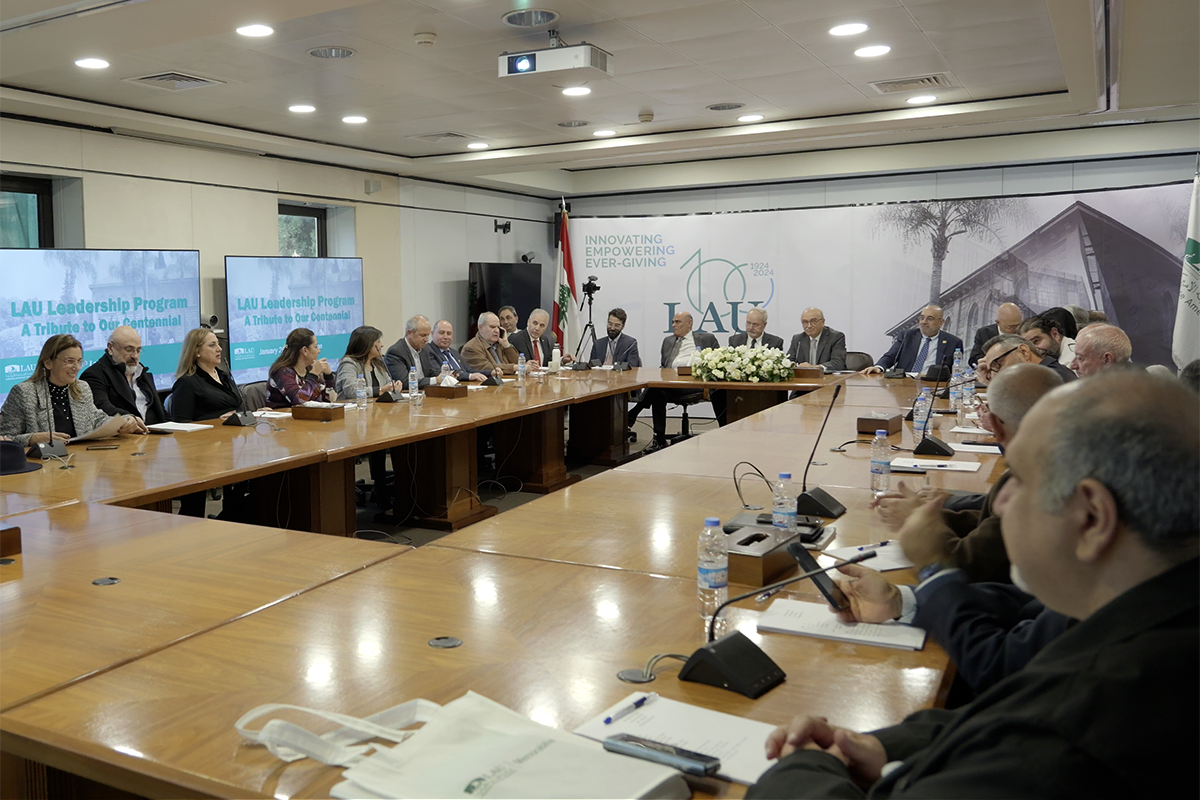Cultivating Strategic Leadership for LAU’s Next Hundred Years
LAU launches a leadership program based on lessons learned to buttress the university against upcoming challenges.
One hundred years have passed since LAU evolved from a college for women to a university of the 21st century. A long history marked by peaks and troughs, not least the steep learning curve imposed by recent unprecedented crises in the country from which the university emerged stronger thanks to strategic leadership and robust management.
Looking ahead to the next century and beyond, LAU has several initiatives underway to shore up its sustainability, relevance to a future labor market, expansion and rankings, and to transform itself into a “comprehensive graduate university with research deeply embedded in it,” said LAU President Michel E. Mawad.
As this will entail the concerted efforts of leadership and management, Senior Advisor to the President for Special Projects George K. Najjar and Associate Professor of Marketing at the Adnan Kassar School of Business Zahy Ramadan “designed, upon my suggestion, the LAU Leadership Program to cultivate and spread leadership at the university, primarily as a tool for transition,” said Dr. Mawad.
On 26 January, Dr. Mawad, Dr. Najjar and Dr. Ramadan launched the program in an introductory session attended by Provost George E. Nasr, vice presidents, assistant vice presidents, deans and senior managers.
To address the strategic challenges that LAU is facing in its centennial year, participants in the program will be presented with case studies of previous pivotal decisions made by the university with a focus on the move toward dollarization as it had occurred recently, in a crisis, and involved just about all university constituents, said Dr. Najjar.
“During the case study and the discussion that will follow, participants will gain a better understanding of how decisions are made at LAU, leadership styles that can be seen at the institution and other leadership styles that may be useful to introduce for the next phase that will be characterized by new challenges of the kind that we have not encountered before,” he added.
The case study will recapture the dynamics involved in making the decision, an understanding of related management concepts and techniques, and draw on real-time and retrospective lessons for the future.
It will serve as an example of strategic leadership in action, which aims to create organizational energy, multiplying that energy by mobilizing others and channeling it for impact aligned with the university’s long-term goals, its competitive position and sustainability. Participants are invited to provide their feedback and suggest other case studies.
In the process, the dollarization case study will inform participants on crisis management, team building, making mistakes and turning them into learning experiences, spotting challenges on the horizon, building sustainability, and preparing the institution for the next level, said Dr. Najjar.
“Leadership is a skill that can be learned,” noted Dr. Ramadan. “The problem however arises when someone is promoted to a leadership position without being taught to be a leader.”
Through the program, participants will acquire new leadership and management skills and learn to use leadership techniques to enhance performance and apply managerial best practices. They will also be well-equipped to introduce management techniques with a strong leadership component as well as mentoring and coaching sessions for future leaders to create a leadership multiplier effect. Here, individual continued self-learning is key.
In hindsight, the urgent need to make bold and quick decisions under extreme circumstances has bred innovative approaches that not only sustained the university but kept it ahead of the curve. This is the art of turning problems into opportunities.
“Now that the crisis is behind us, what stays are the lessons we have learned to deal with the next crisis. And that is leadership,” said Dr. Mawad. “All indicators, enrollment, expansion, renovation of curricula and online delivery, and relationship with industry, demonstrate that we have done well.”
The program will be offered in two-day sessions and several renditions to groups of LAU senior and middle academic and non-academic managers on a nomination or voluntary basis.


